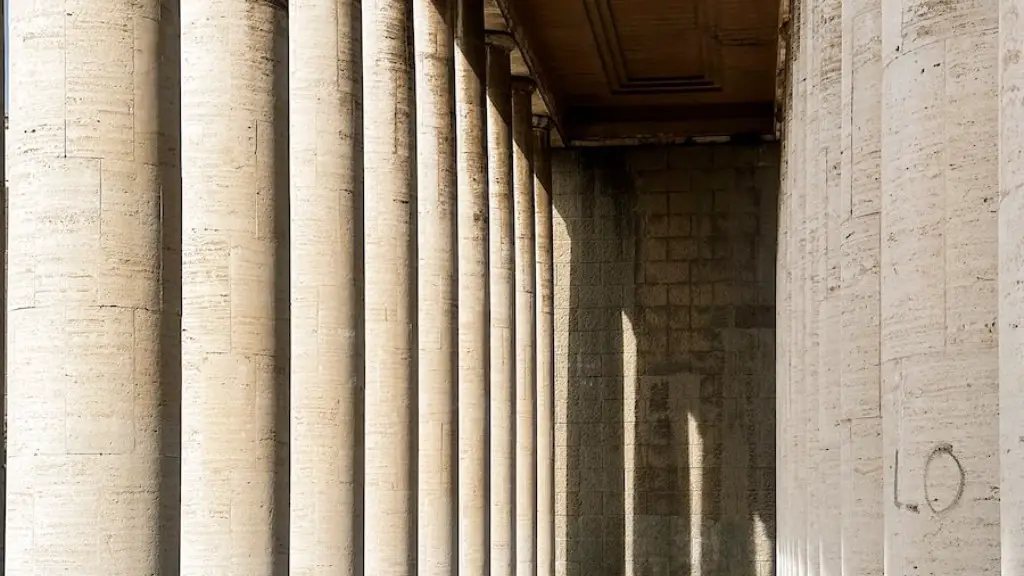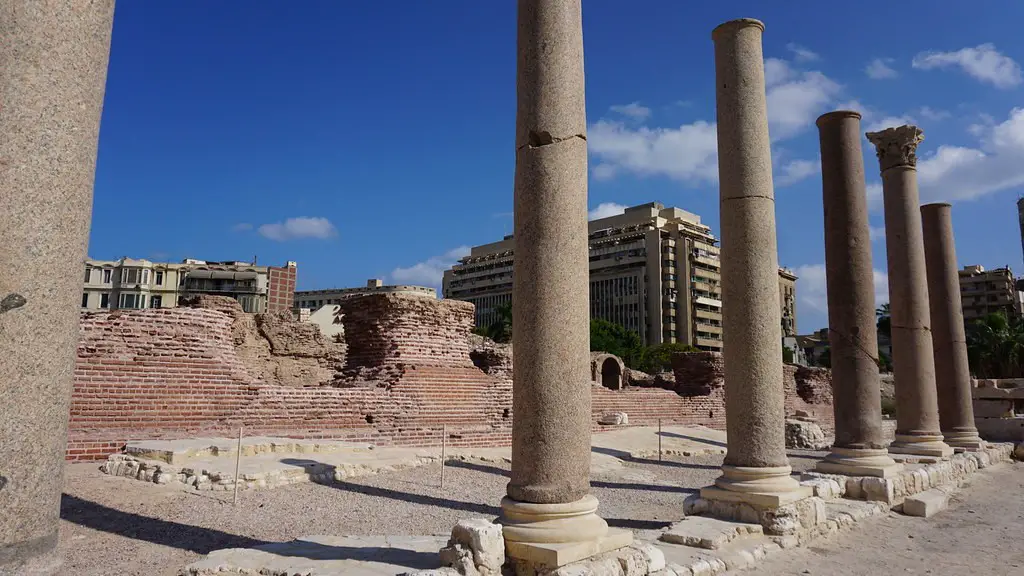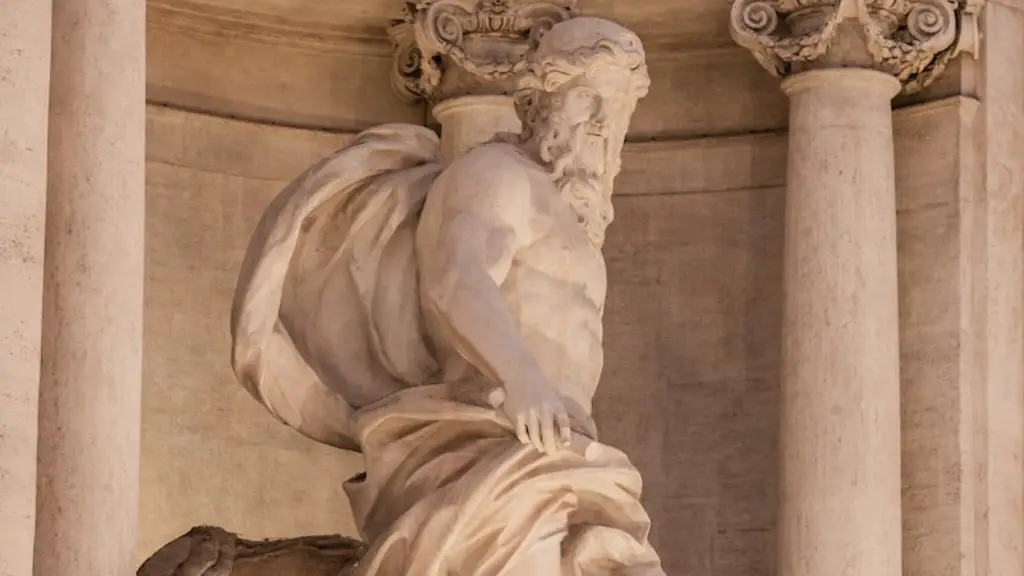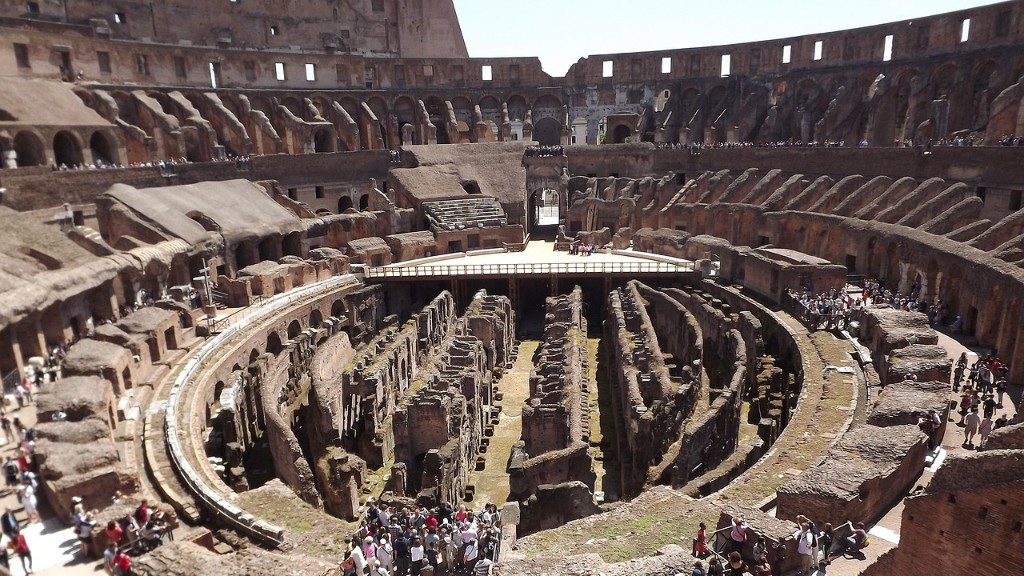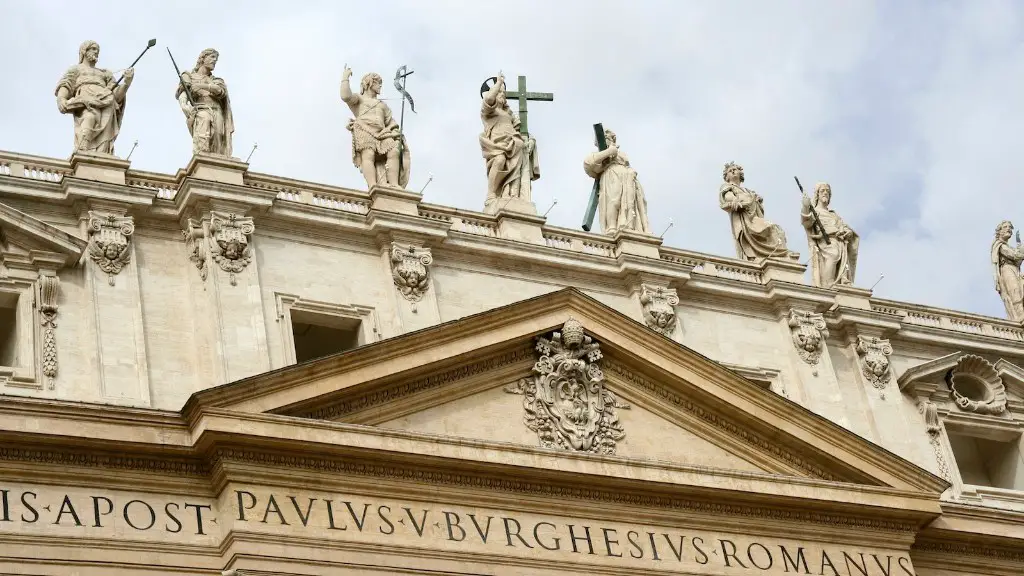The Origin of the Chief God
The ancient Romans hadtheir own spiritual system built on tradition from the Etruscans and was heavily influenced by the Greeks. At the center of theRomans’ worship was the chief god. The chief god was seen as the lord of the gods and all lower deities, and his name was Jupiter. He was passionately worshipped and seen as a protector and ruler of their lands.
Jupiter was often associatedwith gods from the Greeks, chief among them being the god Zeus who was King of the Greek gods. Jupiter was a representation of very ancient gods and spirits, and can be traced back to the Proto-Indo-European god *Dyēus Ph₂tḗr (“Sky Father”).
It is said that Jupiter was bestowed many attributes over the years. He was seen to be the father of the country and protector of the state, the only god to whom any public religion was offered, the guarantor of treaties and honesty among citizens of all social classes.
Jupiter was known to be a popular deity during the times of the Roman Empire. He was the ruler of all other gods and the protector of their empire. Many statues and sanctuaries were built in honor of Jupiter, and he was honored in many festivals.
Jupiter held immensepower and influence, even over the emperor. For example, whenever an emperor was presented as a god to the people or declared himselfexempt from human law, it was under the name of Jupiter. This shows how strong the association was between the deity and the state.
An interesting aspect is that Jupiter evolved over time. In the past, Jupiter was represented as a god of agriculture, then a god of storms, or lightning. However, eventually he was seen as the supreme god, and it was accepted that he was responsible for all the aspects of the world. With this, the figure of Jupiter became more powerful than any other divinity in Rome.
Even though the chief god of the ancient Romans is no longer worshipped today, it is still interesting to look at the influence it had on the people then. In particular, the authority Jupiter had on the rulers made it evident that it was the prime force in the Roman Empire.
Jupiter and His Role in Roman Society
Jupiter was the patrongod of the ancient Roman religion and was essential not only to the lives of the Romans but also to their society. He was the protector of the people and the state, and was responsible for bringing good fortune to both. He was also the holder of justice, responsible for punishing those who broke both Roman and natural law.
Jupiter was seen asa source of authority and power, both because of his reputation as the father of the gods and the king of heaven, and because of his considerable influence in Roman society. He was the subject of countless festivals and public holidays, and his image was featured prominently in the form of a bust or a statue in many public places.
Additionally, Jupiter had a strong connection to the emperor. It was common for emperors to take oaths in the name of Jupiter to acknowledge their loyalty to the gods and loyalty to the state. This made Jupiter even more powerful in terms of influence and authority.
The ancient Romans also believed that Jupiter could influence the weather and made offerings to him in times of drought or flood. He was even seen as the protector of travelers, and many people would pray to him before embarking on the long journeys.
Finally, Jupiter was seen as the guardian of justice, both human and divine. He was the one who made sure that powerful people respected the law, and he was responsible for punishing those who did not follow it. This made him an important figure in Roman society, as the people knew that he would protect them from injustice.
The Role of Jupiter in Mythology
As the chief god of the Romans, Jupiter had a significant role in their mythology. In many myths, Jupiter was portrayed as a powerful and wise ruler, who was entrusted with keeping order and protecting the people from harm. He was also shown as a benevolent god, helping those in need and rewarding the kindhearted.
In some stories, Jupiter was depicted as a jealous god, who would punish those who betrayed him. He was also said to have a deep hatred for oath-breakers and was known to take revenge on those who broke their sacred promises. This further strengthened his position as a powerful figure and made the Roman people more aware of the consequences of their actions.
Jupiter also had a major impact on the other gods. When the ancient Romans adopted the Greek gods, they placed Jupiter at the top of the pantheon, giving him even more power. This made him a model figure to emulate, and the source of authority for all other gods.
Finally, many of the gods and goddesses were said to have descended from him. This further cemented his position as the father of the gods and as a powerful figure in the Roman pantheon.
The Decline of Jupiter’s Influence
As the Roman Empire expanded and came into contact with other cultures and religions, Jupiter’s influence slowly began to decline. People began to question the old Roman gods and their power, and the Roman Empire slowly began to lose its stronghold on the ancient world.
As Christianity spread, the worship and reverence of Jupiter began to fade. This process accelerated after the official adoption of Christianity by the Roman Emperor Constantine in the 4th century CE. People no longer looked to Jupiter for guidance or protection, and he began to fade into mythology.
Jupiter’s influence was further weakened by the spread of other religions and philosophies like Islam and Buddhism. People started to turn away from the old gods and focus on the new ideas and teachings, which led to the further decline of the chief god.
Today, Jupiter is still remembered but no longer worshipped by the people. Although his influence is no longer as strong as it once was, many of the concepts and ideas associated with him remain relevant and are still influential in today’s society.
Legacy of Jupiter Today
The legacy of Jupiter is no longer as strong as it once was, but his influence can still be seen today in many aspects of Roman society. For example, many Roman laws were based on the idea of justice as defined by Jupiter, and his concepts of law and order have had a lasting effect on modern legal systems.
In terms of mythology, Jupiter remains an important figure in popular culture. He is often portrayed in media as wise, powerful and benevolent, and he has been the subject of several movies and TV series. This has kept his legacy alive, even if he is no longer worshipped.
Finally, Jupiter’s name is still used in many aspects of our everyday lives. For example, the planet Jupiter, the chemical element Jupterium, and the brand name Jupster are all examples of how he is still remembered in modern society.
Conclusion
The chief god of the ancient Romans, Jupiter, had an immense influence on their society and culture. From the religious ceremonies and festivals in his honor, to his presence in everyday life, Jupiter was a powerful and revered figure. Even though his influence has waned over time, many aspects of his legacy are still present in modern society.
